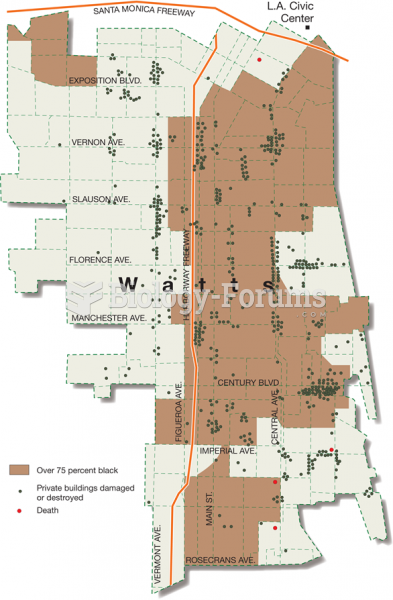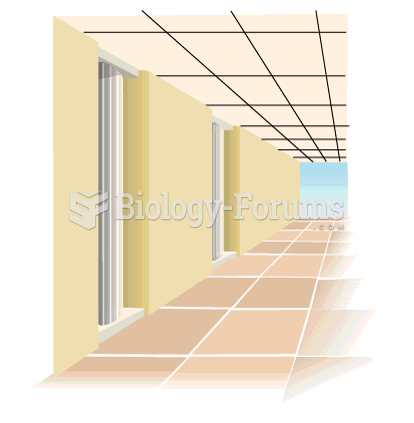|
|
|
Cutaneous mucormycosis is a rare fungal infection that has been fatal in at least 29% of cases, and in as many as 83% of cases, depending on the patient's health prior to infection. It has occurred often after natural disasters such as tornados, and early treatment is essential.
Hypertension is a silent killer because it is deadly and has no significant early symptoms. The danger from hypertension is the extra load on the heart, which can lead to hypertensive heart disease and kidney damage. This occurs without any major symptoms until the high blood pressure becomes extreme. Regular blood pressure checks are an important method of catching hypertension before it can kill you.
Women are 50% to 75% more likely than men to experience an adverse drug reaction.
Drugs are in development that may cure asthma and hay fever once and for all. They target leukotrienes, which are known to cause tightening of the air passages in the lungs and increase mucus productions in nasal passages.
The FDA recognizes 118 routes of administration.
 Magnetic resonance imaging (MRI). The MRI lab includes the scanning instrument and a computer statio
Magnetic resonance imaging (MRI). The MRI lab includes the scanning instrument and a computer statio
 A typical fuel-pump module assembly, which includes the pickup strainer and fuel pump, as well as ...
A typical fuel-pump module assembly, which includes the pickup strainer and fuel pump, as well as ...





